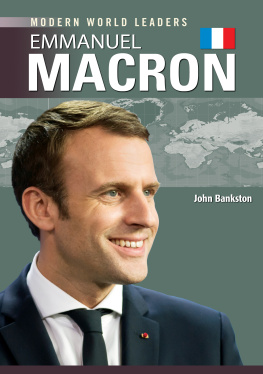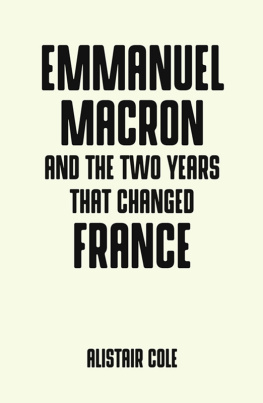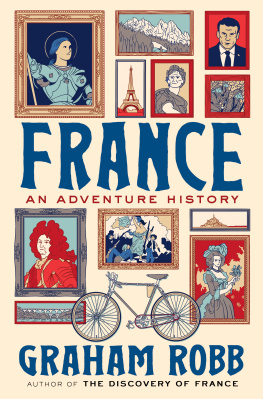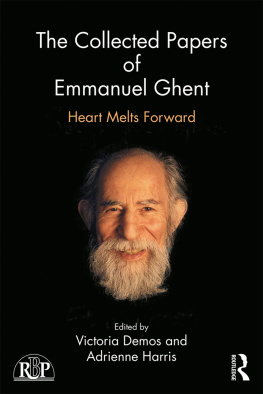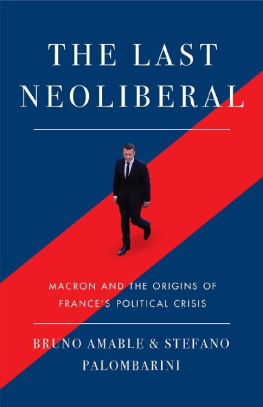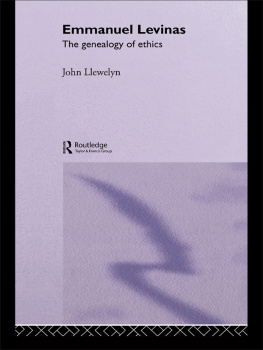Plowright Adam - The French Exception : Emmanuel Macron - The Extraordinary Rise and Risk.
Here you can read online Plowright Adam - The French Exception : Emmanuel Macron - The Extraordinary Rise and Risk. full text of the book (entire story) in english for free. Download pdf and epub, get meaning, cover and reviews about this ebook. year: 2017, publisher: Icon Books Ltd, genre: Detective and thriller. Description of the work, (preface) as well as reviews are available. Best literature library LitArk.com created for fans of good reading and offers a wide selection of genres:
Romance novel
Science fiction
Adventure
Detective
Science
History
Home and family
Prose
Art
Politics
Computer
Non-fiction
Religion
Business
Children
Humor
Choose a favorite category and find really read worthwhile books. Enjoy immersion in the world of imagination, feel the emotions of the characters or learn something new for yourself, make an fascinating discovery.
- Book:The French Exception : Emmanuel Macron - The Extraordinary Rise and Risk.
- Author:
- Publisher:Icon Books Ltd
- Genre:
- Year:2017
- Rating:5 / 5
- Favourites:Add to favourites
- Your mark:
- 100
- 1
- 2
- 3
- 4
- 5
The French Exception : Emmanuel Macron - The Extraordinary Rise and Risk.: summary, description and annotation
We offer to read an annotation, description, summary or preface (depends on what the author of the book "The French Exception : Emmanuel Macron - The Extraordinary Rise and Risk." wrote himself). If you haven't found the necessary information about the book — write in the comments, we will try to find it.
Plowright Adam: author's other books
Who wrote The French Exception : Emmanuel Macron - The Extraordinary Rise and Risk.? Find out the surname, the name of the author of the book and a list of all author's works by series.
The French Exception : Emmanuel Macron - The Extraordinary Rise and Risk. — read online for free the complete book (whole text) full work
Below is the text of the book, divided by pages. System saving the place of the last page read, allows you to conveniently read the book "The French Exception : Emmanuel Macron - The Extraordinary Rise and Risk." online for free, without having to search again every time where you left off. Put a bookmark, and you can go to the page where you finished reading at any time.
Font size:
Interval:
Bookmark:
For Natacha, Arlette and Marlow

I BET HES TURNING IN HIS GRAVE SEEING THE LOT WE HAVE governing us nowadays, sighed Sylvie Gautier, a 52-year-old former policewoman standing in spring sunshine in the small French village of Colombey-les-Deux-glises at the end of March 2017.
She and her partner Didier Consigny had come to pay their respects at the final resting place of Charles de Gaulle, Frances most illustrious 20th-century leader, who died here in his family home in 1970.
The small and peaceful village, with its stone cottages surrounded by gently rolling hills, is a French pilgrimage site with a symbolic value every bit as important as the great royal or revolutionary landmarks of Paris.
The Louvre and the Palace of Versailles, the Place de la Concorde, Place de la Rpublique or the Bastille column around the capital are monuments to the great clashes of the last two centuries that saw the French Republic ultimately triumph over royal autocracy.
Each of them bears witness to Frances epic history, to its role as a cradle of democracy and its peoples fight for human rights and the freedom of speech. This battle, which shaped the modern state, helps explain why the French seem so assured of their own exceptionalism and convinced that their experience carries a universal message to the world.
Colombey-les-Deux-glises, a three-hour drive into the countryside east of Paris, is a place to reflect not on Frances role as a beacon for democracy, but rather on its own salvation from chaos and defeat, as well as the fraught relationship between the French people and their leaders.
In 1934, Charles de Gaulle, then a lieutenant-colonel in the French army, bought a large home here, La Boisserie, at a bargain price from an elderly local woman, in order to provide a stable base for his wife and young children as Europe was again lurching towards war.
This pretty but unexceptional village set around a church dating back to the 12th century would become the place he would write, brood and plot, as well as the backdrop to some of the great political theatre of his extraordinary life.
Whenever it is possible, we go to La Boisserie, he wrote, reflecting on his life a few months before his death at the age of 80. Its there that I go to think. There that I write the speeches which are a painful and perpetual effort. There that I read the books which are sent to me. There, watching the horizon of the land and the immensity of the sky, that I restore my serenity.
Today politicians as well as thousands of visitors like Gautier and Consigny come every year to visit his grave in the church cemetery where he was buried in Frances good and blessed land next to fellow villagers.
Beside his tomb, marked by a simple cross in white stone and the simple inscription Charles de Gaulle 18901970, lie his beloved wife Yvonne and his handicapped daughter Anne, whom the devoted general once credited as an inspiration for his achievements.
The manor house of La Boisserie, where de Gaulle would work in his downstairs office admiring the view of the morning fog, or the forested hills beyond, has been turned into a visitors centre.
The handsome building with its ivy-covered facade is now a museum containing his belongings, including his books and the dining table where he would eat his favourite meal, roasted pigs ears, after attending mass with Yvonne on Sundays. It also contains the table where the famously straight-backed 1.95-metre lover of cards slumped over during a game of patience after suffering a massive heart attack on the evening of 9 November 1970, less than a fortnight before his 80th birthday.
As a statesman, de Gaulle continues to tower over French public life. He set a precedent so high that none of his successors ever seem to match up. As a general, as the leader of French resistance to Nazi occupation and then as father of the modern Republic, he is the epitome of how extraordinary individuals are able to shape history through their own personality and will.
His incredible life is told at a second museum in Colombey-les-Deux-glises, the Charles de Gaulle Memorial, an angular, white building of modernist design which opened in 2008 on a site set slightly above the roofs of the village below. Behind the memorial, at the top of the hill and visible above the trees, stands a giant Cross of Lorraine in granite and bronze a cross with two bars that de Gaulle adopted as a symbol of French resistance during the Second World War. Its construction was one of the few things he expressly wished for after his death: It will inspire rabbits around there to stand and resist, he joked.
Unfolding from the museums entrance is a panoramic view of the fields and woodland below, which was eulogised by de Gaulle in his memoirs: Vast, uncultivated and sad horizons; wood, meadow, crops and melancholic fallows; the outlines of former mountains worn down and resigned; quiet villages of little wealth of which millennia have changed neither the soul nor location.
The serenity he found in the landscapes can be appreciated when set against the photographs, videos and recordings on show in the museum that place him at the centre of the disintegration and rebuilding of 20th-century France.
They provide an insight into de Gaulles enormous personal courage as a soldier in the First World War, during which he was injured on three occasions, the last time in 1916 when he was captured and presumed dead before being imprisoned in Germany. As a tank commander in 1940, he demonstrated similar bravery when the vastly superior and more organised German forces, backed by air power, left the French outgunned and outmanoeuvred on the eastern front.
Faced with the defeatism of his superiors, his moral clarity shone through as he continued to urge the government to regroup their forces and continue fighting the Germans, first as an outspoken general in the French army, and then when he was promoted to deputy war minister. Throughout the 1930s de Gaulle had urged the government to modernise the army and invest in tank technology in vain.
As his government capitulated to the Nazis in 1940, de Gaulle fled to London on a British plane, watching from the window as smoke billowed up from destroyed ships and burning munitions dumps below in his shattered country. After stopping off on the island of Jersey in the English Channel to refuel the plane and buy a case of whisky for British Prime Minister Winston Churchill, de Gaulle headed for London to present himself to the British government as the leader of Free French Forces.
Whatever happens, the flame of the French resistance must not be extinguished and will not be extinguished! he said in his famous first address to the French people on 18 June 1940, which was broadcast across the channel by the BBC.
After the entry of American forces decisively swung the war in favour of the Allies, de Gaulles triumphant return home in 1944 for the liberation of France provided the French people with a new narrative for their war-time experience, which had hitherto been one of military humiliation and capitulation. But like the great war leader Churchill, de Gaulle later found himself surplus to requirements in peacetime. He disagreed with the new constitution that had been proclaimed in 1946, which created the Fourth Republic based on a parliamentary system which he felt gave too little power to the government. De Gaulle headed his own party, the Rassemblement du Peuple Franais (RPF, the Rally of the French People) but after his failure in general elections in 1953, he abandoned politics. So began his wilderness years at La Boisserie in Colombey-les-Deux-glises (which had been occupied by German forces during the war), where he devoted himself to writing his memoirs and spending time with his family.
Font size:
Interval:
Bookmark:
Similar books «The French Exception : Emmanuel Macron - The Extraordinary Rise and Risk.»
Look at similar books to The French Exception : Emmanuel Macron - The Extraordinary Rise and Risk.. We have selected literature similar in name and meaning in the hope of providing readers with more options to find new, interesting, not yet read works.
Discussion, reviews of the book The French Exception : Emmanuel Macron - The Extraordinary Rise and Risk. and just readers' own opinions. Leave your comments, write what you think about the work, its meaning or the main characters. Specify what exactly you liked and what you didn't like, and why you think so.



